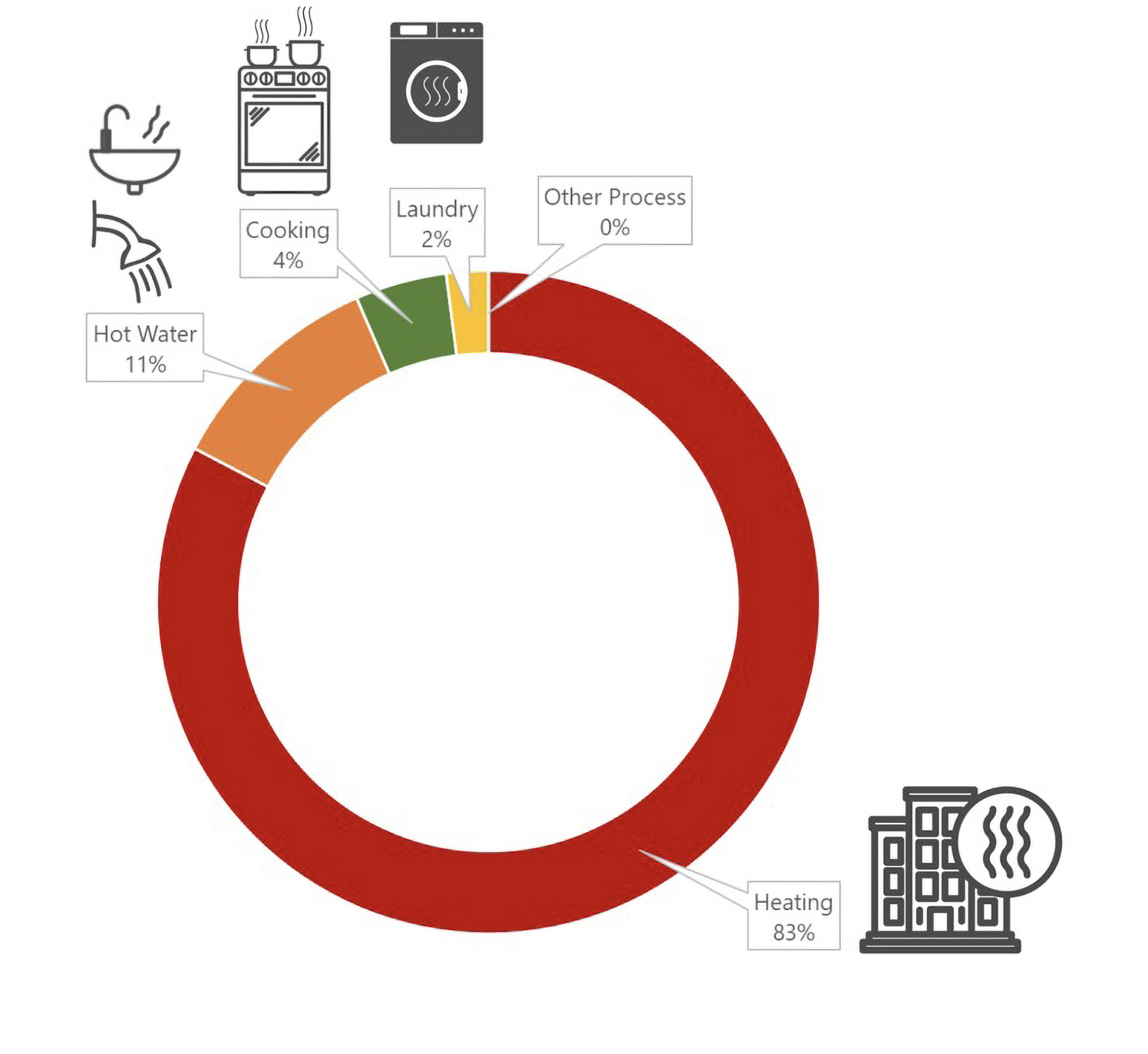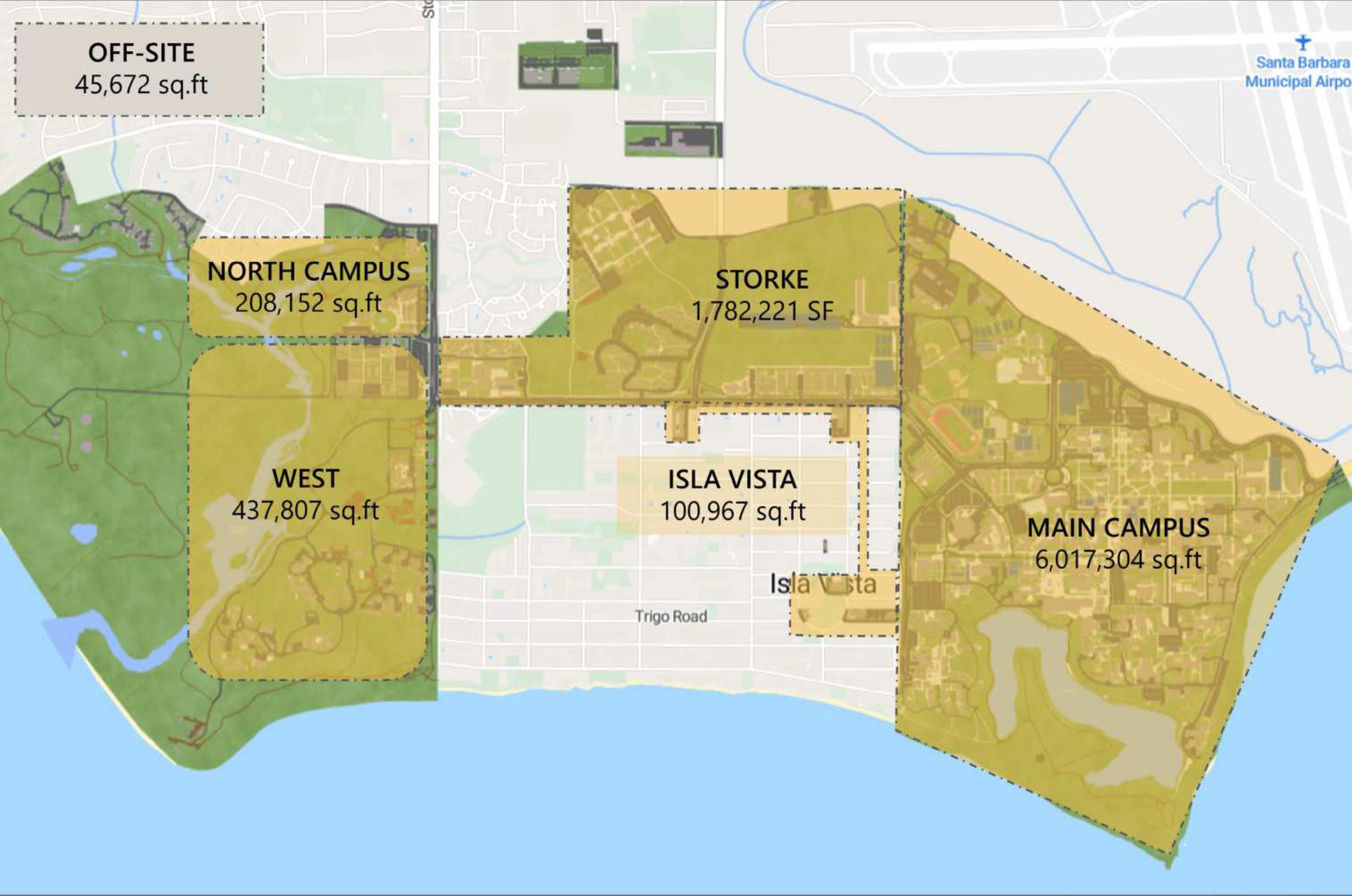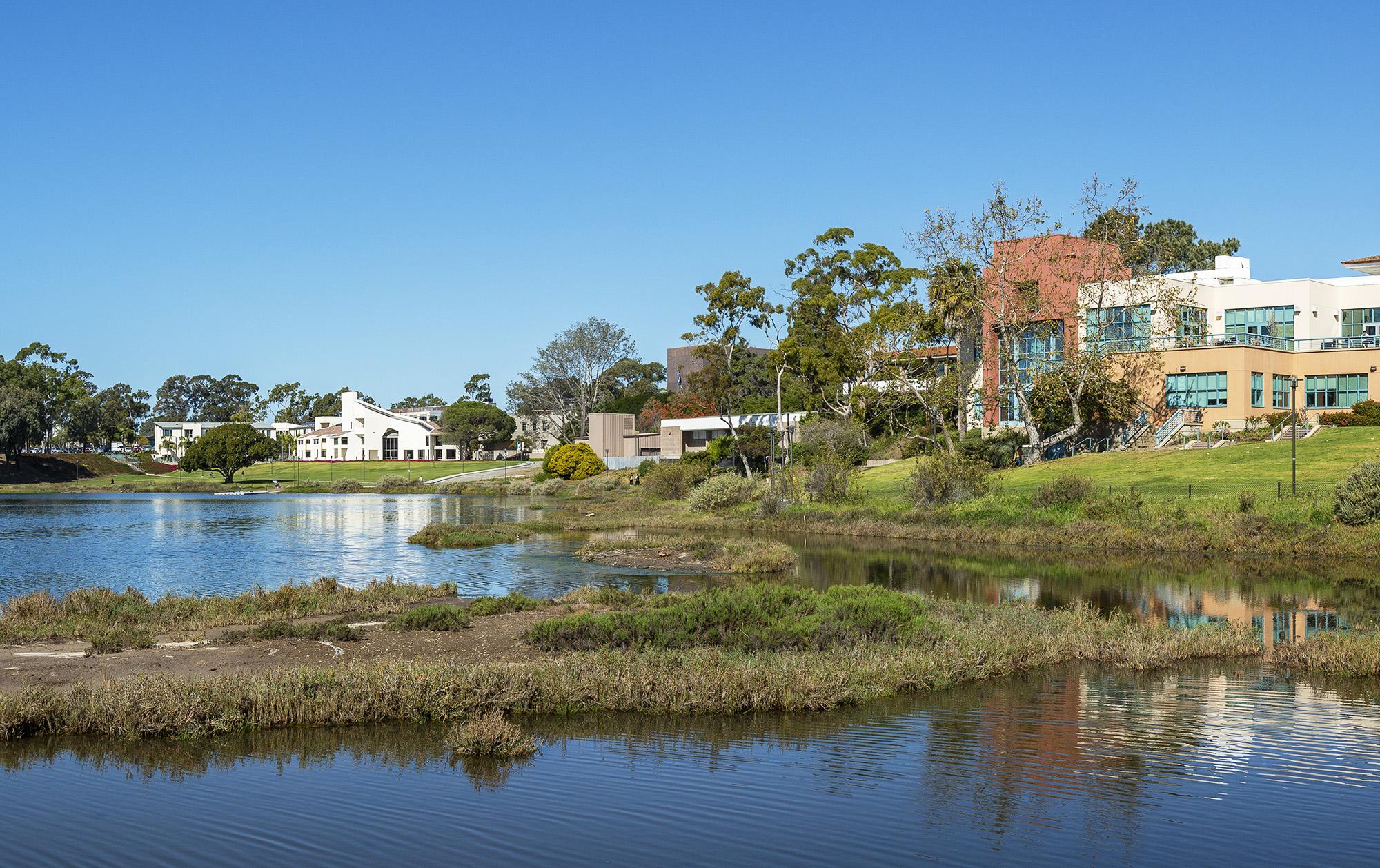University of California’s Office of the President (UCOP) accelerated efforts to decarbonize campus energy infrastructure by providing funding for each campus to conduct a decarbonization study. Reducing on-site greenhouse gas emissions (such as natural gas) is the largest remaining challenge to achieving the system’s climate action goals and maintaining UC’s status as a leader in climate action.
With this direction and funding, the study assessed the technical and financial strategies needed to achieve a 90% or greater reduction in direct emissions from on-site energy infrastructure, identified climate justice and equity considerations, analyzed gaps needed for climate action planning, and determined research and education opportunities. To meet this objective, at UC Santa Barbara, we developed the Clean Energy Master Plan.

While UCSB already procures 100% clean power from the UC Clean Power Program, heating and hot water provided by distributed combustion-based equipment throughout campus buildings account for approximately 94% of UCSB’s natural gas consumption.
By electrifying all heating and hot water sources, UCSB will eliminate 16,484 metric tons of carbon dioxide equivalent (MTCO2e) emissions annually, equal to 50% of the University’s total greenhouse gas emissions (2023).
Decarbonization Strategy and Analysis
The Clean Energy Master Plan defined a strategy for 90% reduction in Scope 1 greenhouse gas emissions; those resulting from onsite fossil used in campus energy systems and that made up the vast majority of UCSB’s GHG emissions. The Plan provided high-level estimates encompassing both total capital and operational costs and savings and provided financial information crucial in weighing potential decarbonization strategies.
Environmental Justice and Equity Analysis
The Plan identified environmental justice and equity considerations associated with the transition to fossil fuel-free infrastructure through research and local community outreach and based on the UC Framework for Incorporating Environmental and Climate Justice into Climate Action.
Net-Zero Planning and Gap Analysis
In addition to the formulation of a 90% emissions reduction strategy, the Plan documented any current knowledge gaps that pointed to areas for improvement and potential methods to incorporate new practices, and outlined subsequent analyses required to conduct a comprehensive Net-Zero Campus assessment.

UC SANTA BARBARA
Clean Energy Master Plan
The Clean Energy Master Plan report, finalized in Fall of 2024, is accessible to the public and available for download. It provides a comprehensive overview of strategies, goals, and initiatives aimed at advancing clean energy development.
The Decarbonization Strategy is based on the analysis of the following:

Existing Conditions
- Campus Regions
- Campus Heating and Cooling Infrastructure
- Current Campus Energy Use & Campus Emissions
- Data Analysis and Modeling

Campus Decarbonization Opportunities
- Thermal Load Patterns
- Diversified Building Loads
- Simultaneous Heating & Cooling
- Shift to Lower Energy Use Times
- Shift to Lower Cost Times
- Other Opportunities

Toolkit: Technologies & Components
- Equipment Technologies
- Central Utility Plant (CUP)
- Campus Piping Distribution
- Building Connections
- Standalone Building Systems

Solution | Air Source Heat Pumps with Thermal Storage
- Eliminates natural gas use for heating and hot water
- Reduces energy cost and equipment replacement costs
- Centralizes cooling Increases redundancy
- Recovers heat
- Moves campus toward decarbonization
Contacts
UCSB Decarbonization Committee Co-Chairs
Susannah Scott, Co-chair; Chair, Academic Senate; Distinguished Professor, Chemistry and Biochemistry
Renée Bahl, Co-Chair; Co-Chair, Chancellor’s Sustainability Committee; Associate Vice Chancellor, Design, Facilities & Safety Services
UCSB Decarbonization Committee Members
Kum-Kum Bhavnani, Distinguished Professor, Sociology; UC Fossil Free Task Force; Associate Vice Chancellor for Global Engagement
Eric Masanet, Professor, Bren School of Environmental Science & Management
Jim Rawlings, Professor, Chemical Engineering; Chair, Academic Senate Council on Planning and Budget
Josh Rohmer, Director, Capital & Physical Planning
Jordan Sager, Campus Energy Manager and Associate Director, Design, Facilities & Safety Services
Mia Reines, Associated Students representative
Olivia Quinn, Graduate Student Association representative